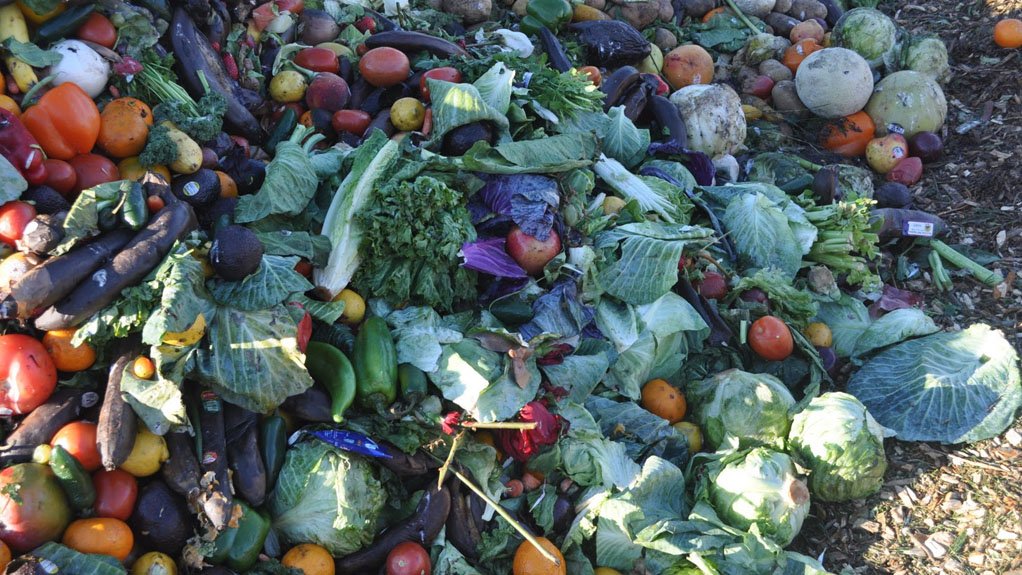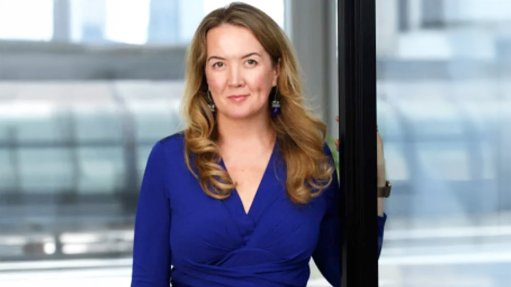Municipalities to reduce emissions by diverting waste


WASTE-DIVERSION STRATEGY The strategy entails waste disposal and the beneficial use for business development
Consulting engineering company JG Afrika and international specialist waste consultancy RWA have developed a strategy to help South African municipalities reduce greenhouse-gas emissions by diverting biodegradable waste from their landfills.
The strategy, developed from 2015 until 2017, entails waste disposal and the beneficial use for business development, as well as the mitigation of climate change, JG Afrika executive associate Richard Emery explains.
The strategy follows the successful completion of a pilot project – titled ‘Diversion of Solid Waste Away from Landfills in Six Municipalities in South Africa – undertaken by JG Afrika and RWA on behalf of the Department of Environmental Affairs (DEA) and the Deutsche Gesellschaft für Internationale Zusammenarbeit, in September last year.
The six selected local municipalities which adopted JG Afrika and RWA’s strategy – were the Mbombela municipality, in Mpumalanga; the Mangaung municipality, in the Free State; the Rustenburg municipality, in the North West; the Emfuleni municipality, in Gauteng; and the Msunduzi and the uMhlathuze municipalities, both in KwaZulu-Natal.
Biodegradable waste – including organic waste – contributes to the generation of greenhouse-gas emissions when disposed of at landfill sites; while food waste further contributes to the contamination of other recyclable waste, thereby making it less economical to recycle or reuse, Emery explains.
“If biodegradable waste can be isolated and diverted away from landfills, attractive recycling opportunities can be realised and the biodegradable waste fraction can be processed into valuable fuel under controlled conditions.”
Emery adds that the pilot project is ongoing and is currently in the stage of funding mechanisms to implement it across other municipalities. “The pilot project is a dynamic assignment that involves extensive engagement. This leads to an all-round project vision that is accepted and embraced by all stakeholders.”
He further adds that each municipality was selected by the DEA, with three different scenarios considered for each municipality after which the best scenario, for each municipality, was chosen.
He explains that the evaluation considered each municipality’s status quo, waste characterisation and quantification and business plans to secure funding for each selected scenario before a preferred intervention was chosen.
Emery says the evaluation process involved drafting practical and financially viable business and implementation plans for the municipalities to unlock Green Climate Fund or other funding to ensure that the identified projects could be implemented.
During the scenario evaluation process, RWA’s software was used and adapted to local conditions, with JG Afrika guiding the process. It considers scenarios in terms of applicability (legally and institutionally sound), appropriateness (whether they are technically and environmentally sound) and affordability (their cost effectiveness for the municipality).
Based on these scenarios, a suitable waste diversion intervention was established for each municipality in the project, comprising a proven cost, as well as mature technology that can be implemented within a reasonable timeframe and can be executed and operated using local skills sets.
Forty short-, medium- and long-term generic interventions were used to develop scenarios for each municipality, from the collection and transfer points to the treatment of organic waste.
Affordability is, however, the main motivator, says Emery, providing a weighting of 50% towards the project ‘scorecard’. Technical and environmental factors, as well as institutional and legal considerations, further influence the choice of project intervention.
“For a solution to be economically viable, its benefits must outweigh its cost. Some interventions have large capital cost and operational cost requirements that will take longer to realise the benefits,” he notes, adding that this might be because of the nature of the feedstock (waste).
Emery further notes that the municipalities which were involved took ownership of their respective pilot project.
“The adoption of the intervention scenarios by the various councils for implementation will facilitate the smooth progression of these scenarios through the various phases of the project life cycles. “This is also an important milestone for the DEA’s larger waste management near-term priority Climate Change flagship programme, to which this project has been aligned,” he adds.
Emery concludes that the success of the pilot project is also anchored on a viable implementation transition between the municipality as the ‘project owner’ and the private sector as the ‘project operator’, as well as the role of regulatory entities, and local, provincial and national government.
Article Enquiry
Email Article
Save Article
Feedback
To advertise email advertising@creamermedia.co.za or click here
Press Office
Announcements
What's On
Subscribe to improve your user experience...
Option 1 (equivalent of R125 a month):
Receive a weekly copy of Creamer Media's Engineering News & Mining Weekly magazine
(print copy for those in South Africa and e-magazine for those outside of South Africa)
Receive daily email newsletters
Access to full search results
Access archive of magazine back copies
Access to Projects in Progress
Access to ONE Research Report of your choice in PDF format
Option 2 (equivalent of R375 a month):
All benefits from Option 1
PLUS
Access to Creamer Media's Research Channel Africa for ALL Research Reports, in PDF format, on various industrial and mining sectors
including Electricity; Water; Energy Transition; Hydrogen; Roads, Rail and Ports; Coal; Gold; Platinum; Battery Metals; etc.
Already a subscriber?
Forgotten your password?
Receive weekly copy of Creamer Media's Engineering News & Mining Weekly magazine (print copy for those in South Africa and e-magazine for those outside of South Africa)
➕
Recieve daily email newsletters
➕
Access to full search results
➕
Access archive of magazine back copies
➕
Access to Projects in Progress
➕
Access to ONE Research Report of your choice in PDF format
RESEARCH CHANNEL AFRICA
R4500 (equivalent of R375 a month)
SUBSCRIBEAll benefits from Option 1
➕
Access to Creamer Media's Research Channel Africa for ALL Research Reports on various industrial and mining sectors, in PDF format, including on:
Electricity
➕
Water
➕
Energy Transition
➕
Hydrogen
➕
Roads, Rail and Ports
➕
Coal
➕
Gold
➕
Platinum
➕
Battery Metals
➕
etc.
Receive all benefits from Option 1 or Option 2 delivered to numerous people at your company
➕
Multiple User names and Passwords for simultaneous log-ins
➕
Intranet integration access to all in your organisation

















